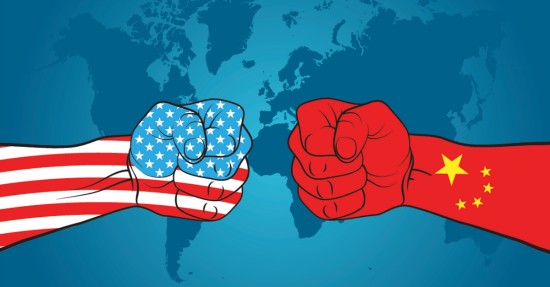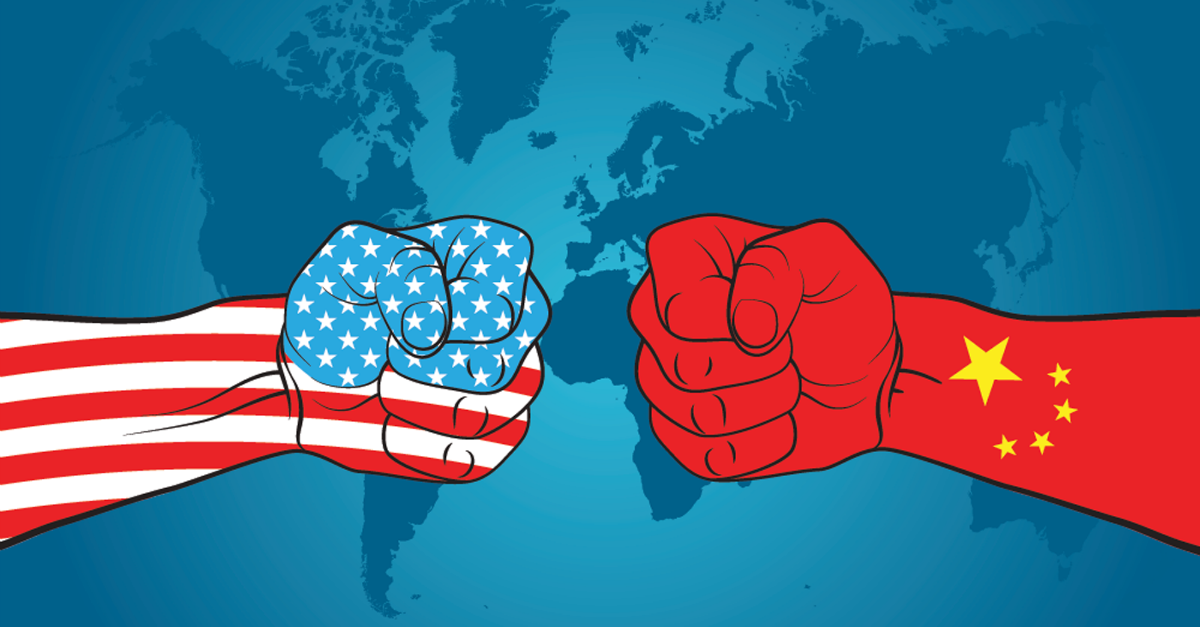 China and the United States usually treat each other the way two heavyweight boxers do – circling each other, jabbing occasionally, but never throwing a big punch that could leave them exposed.
China and the United States usually treat each other the way two heavyweight boxers do – circling each other, jabbing occasionally, but never throwing a big punch that could leave them exposed.
But sometimes one of them lands a punch, like China apparently did in June when it allegedly hacked the US government and stole data on millions of current and former federal employees.
In the aftermath of the breach, President Obama was reportedly considering sanctions against the attackers, under the authority of an executive order he signed in April to punish individuals or entities engaged in cyberattacks against the US.
Despite pressure from members of Congress and several presidential candidates to hit back against China over the attack, the threatened sanctions never came to pass.
That could change very soon.
The Obama administration is reportedly now developing a package of economic sanctions against Chinese individuals and companies – not for hacking the US government, but for theft of trade secrets from US companies, according to a report from the Washington Post.
Sources within the administration told the Post that the sanctions would send a “signal to Beijing” that the US is going to start fighting back against cyberespionage.
This would be the first use of the president’s new authority under the April executive order, the anonymous officials said.
The sanctions, which include freezing of assets and a ban on commercial transactions with the attackers, could essentially cripple a large Chinese company that does business internationally, the Post reported.
As for the cyberattacks that breached US government personnel records, the administration believes those attacks were not geared towards economic gain, but for national security intelligence.
The US may be engaging in “covert cyber action” in response to those spying attacks, sources told the Post, but the administration wants to confront China publicly over economic espionage that it says is harming US businesses.
China’s espionage has been a sore spot for Washington for the past few years.
Last May, the US Department of Justice took the unprecedented step of indicting members of the Chinese military on charges of infiltrating the networks of several major US steel and energy companies to benefit Chinese state-owned enterprises.
The US is also seeking extradition form Canada of a Chinese national it accuses of hacking US military contractors Boeing and Lockheed Martin.
If it decides to impose sanctions, the US could invite retaliation in the form of counter-sanctions against US companies doing business in China.
Chinese President Xi Jinping comes to Washington in October for a state visit, and cybersecurity will undoubtedly be on the agenda for talks with Obama.
If Obama imposes sanctions before Xi’s visit, that could be a very awkward dinner.
Can China’s economy, which is reeling from a collapsing stock market bubble, withstand the pressure of US sanctions against Chinese companies?
Could we end up in a new trade war between the US and China, hurting the economies of both countries, and the rest of the world?
Hopefully, these are questions the US administration is considering before deciding what to do next.
Image of USA vs China courtesy of Shutterstock.com.

Paul Phillips
Generally imposing sanctions against someone else, when you are guilty of the same offense, is not a good idea, in my mind.
SamS
With both countries dependent on each other, the sanctions could end up as a double edged sword. Same sanctions could be imposed on US by China deteriorating the existing relationships. No harm could come out of such sanctions and its not worth imposing sanctions on someone when one should have been more careful at protecting what is important to them.
4caster
Don’t understand this post. Do you mean “No good could come out of such sanctions …..”?
Wilderness
Not only should we do it, we should have done it (and more) a long time ago.
@Paul, it’s not that they spy on us and we spy on them, of course we both do. The issue here is that the Chinese government is stealing massive amounts of trade secrets from US private companies and giving them directly to their private companies. Hence, the sanctions against those private companies.
twestheimer
Both countries are guilty so why not a digital treaty as a first attempt instead of always WARs
Blake
So if I borrow $20 from you and a month goes by and I agree to pay you back are you going to borrow me another $20?
Zec
If you took a walk in London and it starts raining (like it normally does), now you’re soaked and upset, are you going to be mad at the rain or yourself for not bringing an umbrella?
Fix your vulnerabilities US government, blaming China doesn’t do us any good! It doesn’t cost much to hire a couple of IT-Sec guys compared to the trillions of dollars you spend on wars.
J S Hughes
This is a small step in the totally correct direction. I believe we should do more than cry foul about hacking US government data bases. Of course we will protect our businesses. But what about the rest of us citizens? Don’t think for a minute that the Chinese aren’t using the personal data of all of us, for some economic gain – read my lips – ripping the public off – one way or another. Now if those sleaze bags from India would quit calling and saying they are from Microsoft or Window. Ripping of senior citizen of the US should not be a business model allowed by international trade standards. Get of your arse congress – protect us from the real threat -(ps it isn’t terrorist)
Wilderness
I do believe that China’s leaders are smarter and more deceitful than those of the U.S. right now. How else could they wage open Internet and economic warfare against the U.S. and lull their leaders into inaction?
Anonymous
The government(s) hates competition.